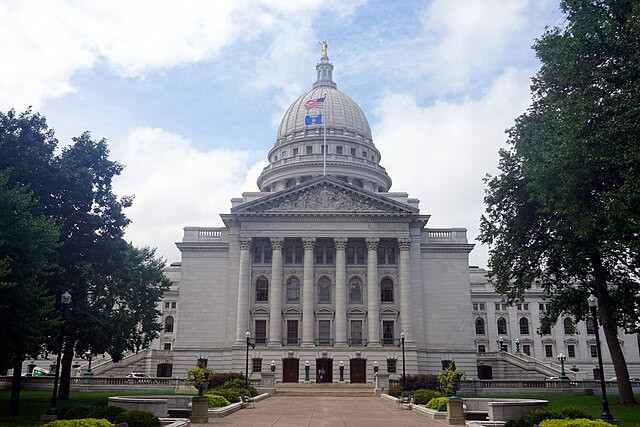In a landmark decision on Monday, Dane County Circuit Judge Jacob Frost struck down Wisconsin's controversial Act 10, declaring key provisions of the 2011 law unconstitutional. The ruling restores collective bargaining rights to public employees who had been excluded under the legislation, marking a significant victory for labor unions.
Act 10, championed by former Republican Governor Scott Walker, had stripped most public workers-teachers, conservation wardens, and other state employees-of their ability to collectively negotiate over wages and benefits. Unions representing police and firefighters, however, were exempt from these restrictions, a distinction Frost cited as a violation of equal protection under the Wisconsin Constitution.
"Nobody could provide this Court an explanation that reasonably showed why municipal police and fire and State Troopers are considered public safety employees, but Capitol Police, UW Police, and conservation wardens, who have the same authority and do the same work, are not," Frost wrote in his ruling.
The decision immediately invalidates provisions of Act 10 that barred collective bargaining for non-public safety employees and directs state agencies to cease enforcement of those provisions. Frost also rebuked the Republican-controlled legislature for suggesting his ruling should carry no actionable remedies.
"In reality, the Legislature argues that the Court can only render an empty judgment declaring parts of Act 10 unconstitutional, but can provide no remedy to stop enforcement of those unconstitutional provisions," Frost stated.
The ruling builds on Frost's initial findings in July, where he first determined that Act 10 violated the equal protection clause. On Monday, he expanded on those findings, effectively restoring bargaining rights to unions that had long been sidelined under the decade-old law.
The lawsuit challenging Act 10 was filed over a year ago by unions representing affected public employees, including teachers and conservation wardens. Union members and leaders hailed the ruling as a major victory.
"Having full collective bargaining rights means we will again have a voice on the job to improve our workplace and make sure that Wisconsin is a safe place for everyone," said Ben Gruber, a conservation warden and president of AFSCME Local 1215. "We realize there may still be a fight ahead of us in the courts, but make no mistake, we're ready to keep fighting until we all have a seat at the table again."
The Wisconsin Education Association Council, the state's largest teachers' union, praised the decision. "This ruling sides with public service workers who have endured more than a decade of diminished rights and stagnant wages," the union stated.
Republican leaders swiftly condemned the decision and vowed to appeal. Supporters of Act 10 argue that the law provided local governments with much-needed flexibility to control costs, particularly in funding employee benefits. Opponents counter that the legislation unfairly targeted workers while exacerbating staffing shortages and wage stagnation in public service positions.
Wisconsin AFL-CIO President Stephanie Bloomingdale underscored the law's impact on workers, noting that "over 60 sections of Act 10," which have "done great harm to working people" in Wisconsin, have been struck down with Frost's ruling.






